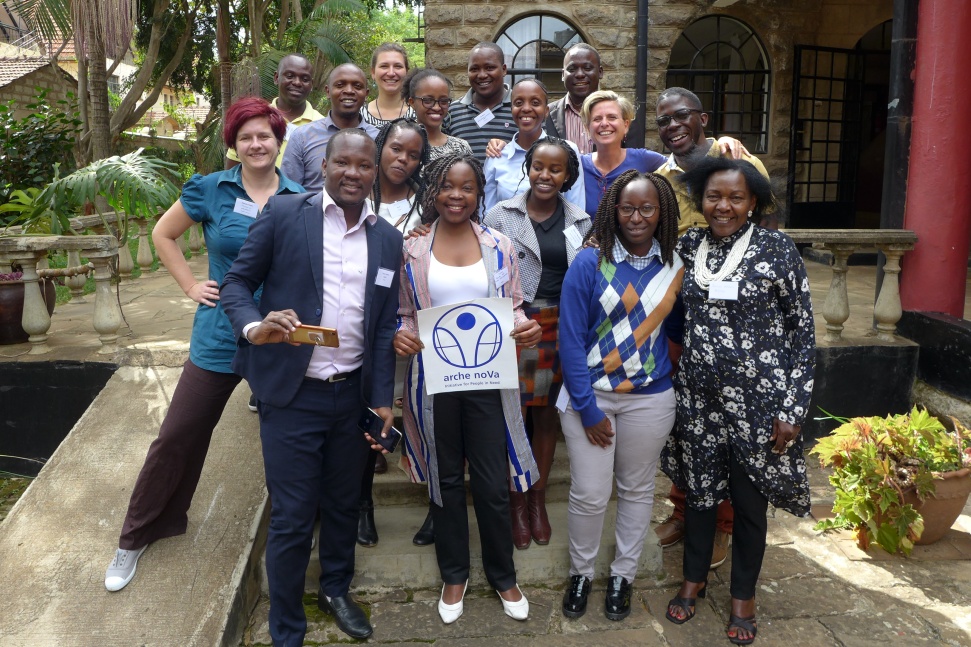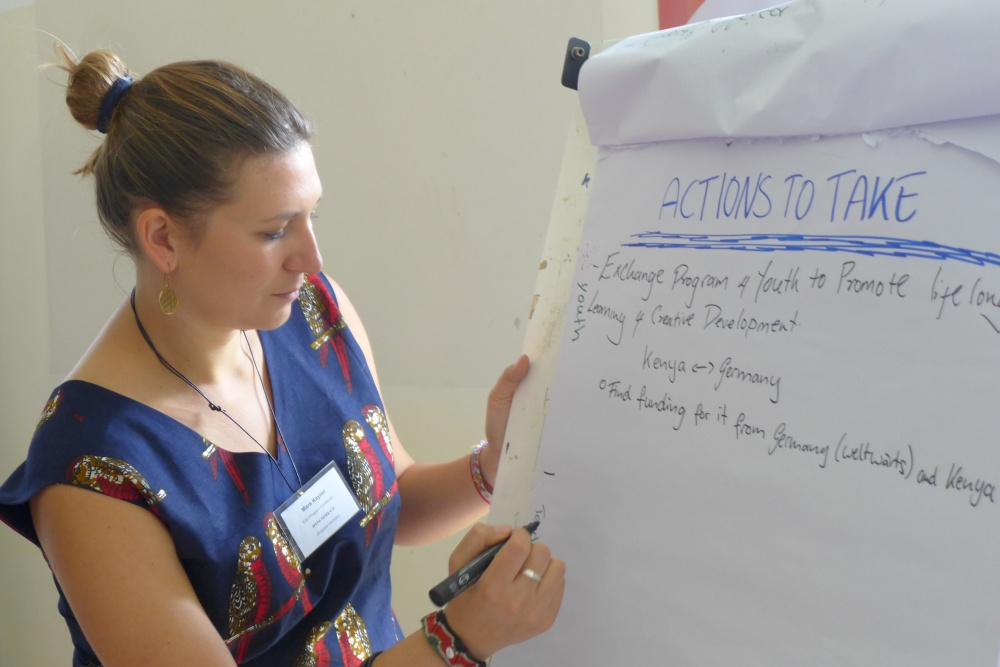In Nairobi arche noVa organised a two-day networking workshop on ESD - Education for Sustainable Development. Nine Kenyan organisations accepted the invitation to inform themselves about the concept of ESD and possibilities for its implementation in Kenya and Germany. They all contributed their own approaches and ideas on how sustainable development in the sense of the SDGs can be promoted through educational measures.
Cooperation with Kenyan organisations
The ideas included workshops with prison inmates, the promotion of change makers, community-based business plans, teacher training and eco-schools. Many helpful contacts, initial project ideas and lots of energy and motivation were the outputs of the first meeting, which took place in cooperation with Ashoka East Africa and with financial support from Engagement Global from BMZ funds.
The international cooperation is part of a new project of our education programme, which aims to train future teachers in Global Learning and Education for Sustainable Development. Teachers are the cornerstone of our educational landscape and impart knowledge to future generations. Our project complements the imparting of factual knowledge with competences that enable us to act in a constantly globalised world.
Exchange for teachers
Building bridges and opening up new perspectives is part of the concept. Therefore arche noVa strives for cooperation with educational associations in Kenya and an exchange of teaching staff. In this way, prospective teachers in Saxony will have the opportunity to exchange, reflect and develop with teachers from Kenya on topics and methods of Education for Sustainable Development.
The general social mood in Saxony shows that there is a need for more humanistic and cosmopolitan perspectives within the population. For example, the "Saxony Monitor 2017" shows that 56% of those surveyed over the age of 18 consider the Federal Republic to be dangerously "alienated" by the many foreigners. There is a clear need for action in dealing with diversity, recognising one's own and foreign values and reflecting one's own position within world society.
Educational Programmes Officer Mara Kayser














